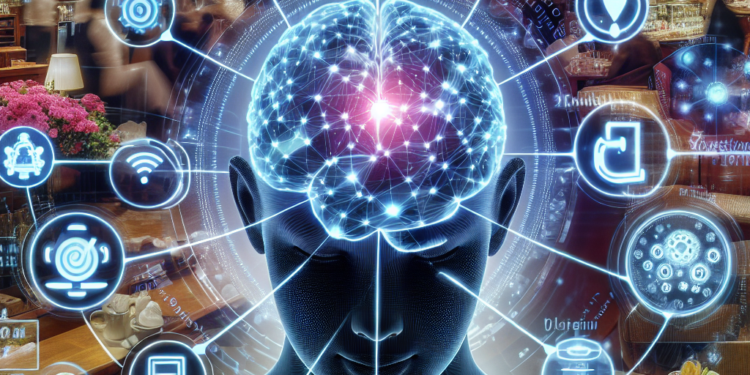In recent years, the hospitality industry has been experiencing a wave of technological advancements that have revolutionized the way businesses operate and provide services to their customers. One of the most significant developments in this sector has been the implementation of artificial intelligence (AI) technology. AI has the potential to significantly impact all aspects of the hospitality industry, from customer service to operations and marketing. In this article, we will explore some of the lessons that the hospitality industry has learned from implementing AI technology.
AI technology has been used in the hospitality industry to improve customer service and personalize the guest experience. Hotels and restaurants are using AI-powered chatbots to handle customer inquiries and provide instant responses to guest requests. These chatbots can handle a wide range of tasks, from booking hotel rooms to recommending local attractions and restaurants. By using AI chatbots, businesses can provide a more personalized and efficient customer service experience, which can lead to greater customer satisfaction and loyalty.
AI technology has also been used to streamline operations and improve efficiency in the hospitality industry. For example, hotels are using AI-powered systems to analyze data and make predictions about customer preferences and booking patterns. This data can be used to optimize room rates, schedule staff, and plan marketing campaigns. By using AI technology to automate these tasks, businesses can save time and resources, reduce human error, and make more informed decisions.
AI technology has also been used to enhance marketing efforts in the hospitality industry. Hotels and restaurants are using AI algorithms to analyze customer data and create personalized marketing campaigns. By analyzing customer behavior and preferences, businesses can target their marketing efforts more effectively and drive more bookings and sales. AI technology can also be used to optimize advertising campaigns, by analyzing data in real-time and adjusting strategies as needed. By using AI technology to enhance marketing efforts, businesses can increase their revenue and reach a larger audience.
One of the most important lessons that the hospitality industry has learned from implementing AI technology is the need for a human touch. While AI technology can automate many tasks and provide valuable insights, it cannot replace the personal touch that human interaction can provide. Hotels and restaurants that have successfully implemented AI technology have also focused on training their staff to provide exceptional customer service and create a welcoming and personalized experience for guests. By combining AI technology with human interaction, businesses can create a winning combination that can drive success and customer satisfaction.
Another important lesson that the hospitality industry has learned from implementing AI technology is the need for continuous innovation and adaptation. AI technology is constantly evolving, and businesses need to stay ahead of the curve to remain competitive in the market. Hotels and restaurants that have successfully implemented AI technology have embraced a culture of innovation and experimentation, constantly seeking new ways to improve and enhance their services. By staying on the cutting edge of technology and being willing to adapt and change, businesses can stay ahead of the competition and create a sustainable advantage in the market.
In conclusion, the hospitality industry has learned many valuable lessons from implementing AI technology. As AI technology continues to evolve and grow, businesses will need to continue to adapt and innovate to stay competitive and meet the changing needs of their customers. By focusing on providing exceptional customer service, streamlining operations, enhancing marketing efforts, and embracing a culture of innovation, businesses in the hospitality industry can succeed in the age of AI technology. By combining the power of AI technology with the human touch, businesses can create a winning formula that can drive success and growth in the hospitality industry.













